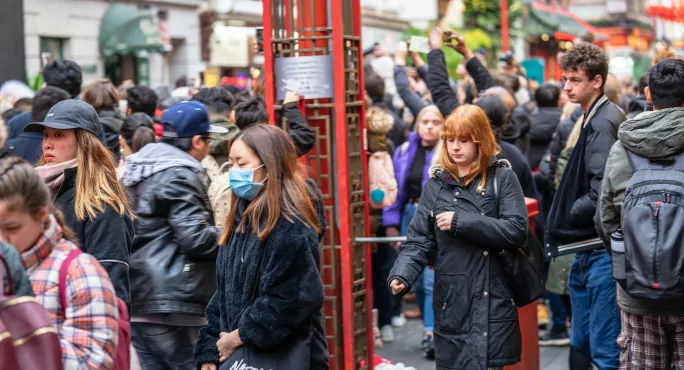The national test and trace system “isn’t fit for purpose” and needs to be replaced with a local system before schools can reopen in September, according to the independent SAGE committee (Scientific Advisory Group for Emergencies).
The committee, meeting on Zoom this afternoon, heard there has been a small rise in the Covid-19 infection rate nationally since mid-July, which is “concerning” given that summer should be the time when the virus is easiest to control.
Andy Burnham, mayor of Greater Manchester - where lockdown measures were reintroduced last month due to a spike in infections - told the committee there was a problem with the current national test and trace system, including delays in contacting people, and infected people being reluctant to give names of those who they’ve been in contact with.
Safety: Covid tests for all teachers ‘essential’
Research: Opening schools risks double strength second Covid wave
Comment: Pubs or schools? Is Covid policy written on a beer mat?
But he said track and trace systems run at the local level would “improve trust”, and called for funding to be released from the national contract with outsourcing firm SERCO, shortly up for renewal, and given to local authorities to build teams (as one option).
He said: “It [a local test and trace system] has to happen now. We have to get this right in August because we’re looking at the prospect of schools reopening. And we’re not in a position at the moment to say we are entirely confident to make the arrangements for schools reopening. The system has holes in the net which have to be fixed.
“There needs to be a strong national-to-local partnership to protect our communities in a winter without a vaccine because that is what is coming at us very quickly.
“The national system, to be fair, can do the more predictable, straight-forward contacting of cases, perhaps of people who are working at home who are easier to get hold of, but what it is struggling to do is contact people whose lives are not as straightforward.”
Committee chair Sir David King - a former government chief scientific adviser - said in a statement ahead of today’s meeting that the current national system was “not fit for purpose”, and that the country needed to “row back” on some of the re-opening measures in recent weeks or risk continued spikes that would clearly make the return of schools “too dangerous”.
Children’s Commissioner for England Anne Longfield said this week that schools must come first in any planning for future Covid-19 lockdowns, and should be the last places to be locked down - after pubs, restaurants and non-essential shops.
However, schools minister Nick Gibb said the government could not “decree” that keeping schools open must be prioritised over pubs during local lockdowns to combat spikes in coronavirus cases.
Committee member Professor Susan Michie, of UCL, told the meeting that one option might be for universities to go online for two terms to allows schools to reopen.
Committee member Professor Christina Pagel, also from UCL, said: “There does appear to be a small increase in transmissions since mid-July… this is concerning because this is the time when we should be able to keep infections low because people are outside, and aren’t really at work as much and there’s no school and no university.”




